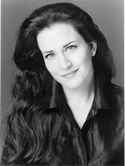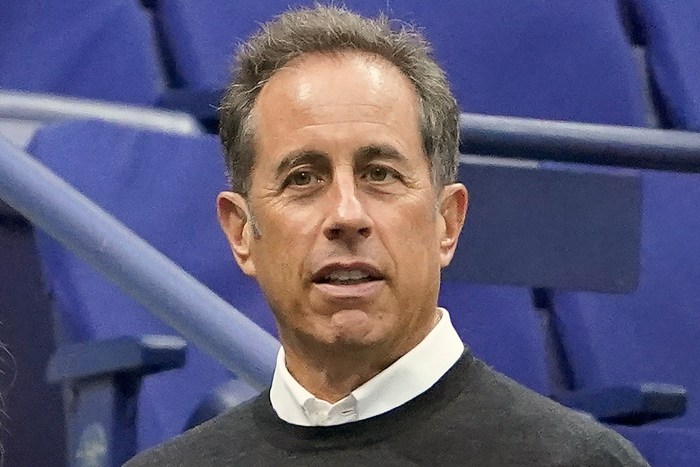Memorable singing in “Don Carlo,” “Samson,” “Orpheus” at Met
John Dexter’s 1979 “Don Carlo” staging, though not one of his most inspired, holds up reasonably well when well cast and conducted, though the garden scene lacks magic and mystery.
Stephen Pickover directed this largely worthy revival, seen on March 3. Fabio Luisi, in a compelling Met debut restored the Verdian architecture lost in the chaotic Gergiev near-debacle of 2002 and strongly supported an effective though not outstanding cast. The only place I felt Luisi less than expert in shaping the music was in act three’s auto-da-fé scene.
It is odd to see this scene in conjunction with the one in City Opera’s “Candide,” which with its jaunty “What a day, what a day/For an auto-da-fé!” which surely parodies Verdi’s magnificent opera, which so strikingly opened the Bing regime in 1950. Some older opera-goers have told me that they wept—as at some undiscovered continent—upon first hearing it, an experience I can attest to from my first hearing of Rossini’s supremely influential “Guillaume Tell.”
When Bing revived the pointedly anti-clerical opera in 1952, picketers from the McCarthyite “Red Channels” magazine appeared with signs saying, “The opera ‘Don Carlo’ makes a mockery of religion” and “Moscow Termites invade the Met.” No sign of Fred Phelps or Randall Terry on Lincoln Center Plaza yet, but they might not feel the need to picket because some of the overt critique of the Spanish Inquisition has been so muted. Dexter had lots of “heretic” victims being burned and lots of smoke; now, if you aren’t seated close in and don’t know what’s supposed to be happening onstage, you’d have no idea that you were watching murderous government-sanctioned religious fundamentalism at work. What has happened? Verdi—and history—are ill-served by the changes.
Ferruccio Furlanetto was a magnificent Filippo, with detailed physical portrayal, keen line readings and a huge, healthy sound. A few grouched that Furlanetto is no Ezio Pinza or Tancredi Pasero––as if there were one in the world today––his is a resonant bass working at all dynamic levels and a theatrically striking assumption of great majesty and distinctiveness. Furlanetto is preparing Boris Godunov and if he can master the linguistic challenge he should be formidable in that career-defining bass part.
Luciana D’Intino, less individual, nonetheless handled Eboli with a full, idiomatic sound, good technique and panache––another fine debut, much applauded for both arias. Sondra Radvanovsky acted a sympathetic Elisabetta and achieved some stunning phrases, especially in pianissimo; however, her bright, extremely vibrant timbre seemed less than ideal for the some parts of the testing role. She phrases the music thoughtfully; she improved as the opera (and the run) went on. On opening night Dwayne Croft hearteningly found his best form in years as a reasonably suave Rodrigo.
After a poor Fontainebleau aria, Richard Margison––looking like Holbein’s portrait of Henry VIII as Carlo––improved to his accustomed foursquare adequacy with some late-evening dynamic shading creeping in. Luisi even coaxed some dynamic subtlety out of Paata Burchuladze’s booming Grand Inquisitor––much better than his dreadful showing in “Nabucco.” Cast from strength: Olga Makarina (“Voce dal cielo”), the superb bass Vitalij Kowaljow (Frate) and Brian Davis (Lerma), who looked like the new Yankee pitcher Randy Johnson, sang very well and made clear the character’s Melot-like function in betraying Carlo and Elisabetta to the King.
This was a highly enjoyable evening; now, how about the company finally giving “Don Carlos” at the Met in its original language, French?
A return visit March 24 did not disappoint. This is a score rich enough to sustain repeated listenings in one season, by no means a quality of all operatic music. D’Intino had inexplicably been engaged for only two evenings, so Eboli was sung by one of the few new Recording Divas on the block––Lithuanian Violeta Urmana, who’s been transitioning from mezzo into soprano roles with a vengeance these last few seasons. A musical singer with a good-sized, well-produced instrument that already has lost most of its mezzo character, Urmana gave an acceptable reading of “O don fatale” but in almost every other way rather paled after D’Intino’s genuinely Italianate article. Perhaps she will be more at home as Strauss’ Ariadne next season. The other new singer was Russell Thomas, who brought a strong, attractive tenor to the brief phrases of the Herald in the auto-da-fé scene.
Peter McClintock made a good effort to breathe life into the 1998 Elijah Moshinsky staging of “Samson et Dalila,” seen March 16, played in the striking, colorful but fundamentally unattractive modernist, oddly pseudo-African décors and costumes of Richard Hudson. Argentine hunk José Cura, whose 1999 Met debut as Turiddu proved severely disappointing, finally returned to the company with a stronger––if still uneven––effort. His Samson, in execrable French––how can such an ambitious artist permit himself this lapse?––commands heroic stature physically and, at least in the upper register, vocally, making his visually committed, dynamic assumption theatrically impressive, even if the tone itself was often unbeautiful and the technique varied puzzlingly from effective to peculiar, phrase to phrase. Cura fared best with the anguished intensity of the third act.
Handsome and graceful onstage, with a warm, seductive and wide-ranging voice, Malgorzata Walewska made a very credible Dalila, attuned to Gallic style and unafraid to act flamboyantly. She sang far better than Denyce Graves, whom she covered for the revival’s other six performances. Walewska’s impressive debut was hailed by an audience that included many of her Polish countrymen. Veteran baritone Frederick Burchinal furnished a baleful-sounding, effective Grand Prêtre. Richard Bernstein was a hectoring, mediocre Abimélech with Cobra Woman fingernails; Robert Lloyd brought more class and a still-substantial sound to the Old Hebrew. Bertrand de Billy, much more at home than in the season’s debatable earlier “Turandot,” brought out the rhythmic flair of Saint-Saëns’ score, down to the Bacchanale’s hootchy-koo.
David Shengold (shengold@yahoo.com) writes about opera for Time Out New York, Opera News, and Opera.
gaycitynews.com




































